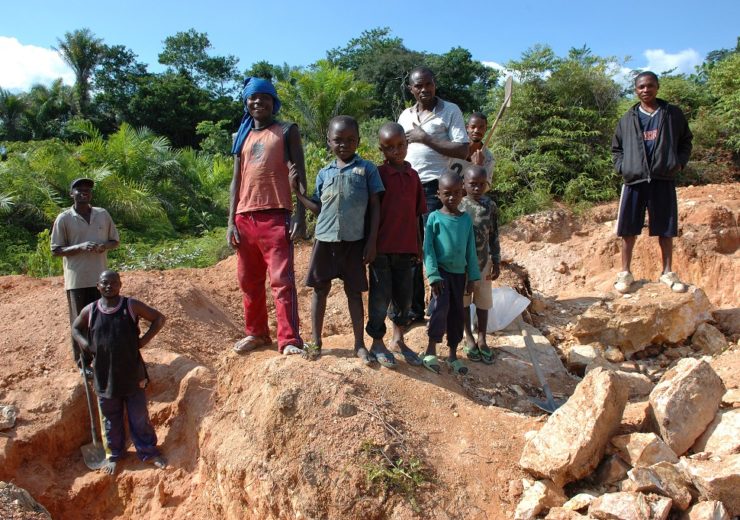Financing needs could push the DRC towards taking on a partner in its venture to establish a monopoly over artisanally-mined cobalt markets in the country

Child labourers are a common sight around the Congolese mining network, which accounts for the majority of the world's cobalt (Credit: Flickr/Julien Harneis)
A state-owned company set up by the Democratic Republic of Congo (DRC) to purchase and market all artisanally-mined cobalt in the country may be on the lookout for a business partner.
Entreprise Generale du Cobalt (EGC) was created by decree in November last year to operate as a subsidiary of government-controlled mining firm Gecamines, to exert greater control over the market for the country’s vast cobalt reserves.
The company had initially been conceived solely as a state-run venture, but mines minister Willy Kitobo Samsoni has now admitted a private partnership could be sought by the DRC government.
Speaking to Reuters news agency at an event in Cape Town, Samsoni said: “The easiest thing for us is to be financed by the Congolese state.
“But if the state cannot raise the funds to buy all the artisanally-mined cobalt, then the state will have to enter into partnership with a company.”
As well as cobalt, EGC will aim to take control over artisanal production of other metals designated “strategic” by the government – including germanium and coltan.
Oversupply of cobalt in the DRC has pushed down prices in recent years
The Democratic Republic of Congo produces roughly 60% of the world’s supplies of cobalt – the distinctive silver metal that has become an essential ingredient of modern technology infrastructure due to its usefulness in lithium batteries and various consumer electronics.
Prices for the sought-after commodity have plummeted over recent years – from more than $90 per tonne in 2018 to just under $35 per tonne this week – largely due to a supply glut as interest in the metal grows stronger.
Large, industrial-scale operators like Glencore account for the majority of cobalt mining in the country – but there is nevertheless a thriving network of small-scale artisanal miners producing between 10% and 25% of the Congolese output.
This small-scale mining network is largely controlled by Chinese traders, which have established a virtual monopoly over the flow of cobalt produced by self-employed artisan miners.
Technology and manufacturing companies from several industries have descended on the Central African nation to wrangle over its prized cobalt reserves – with household names like Google and Apple among those whose supply chains reach far into its often makeshift mines.
But artisanal mining – particularly in the DRC – is a sector that has been blighted by safety, environmental and human rights issues.
Efforts have been made to improve working conditions for artisanal miners in the country, with industry collaborations combining with technology like blockchain to improve supply chain transparency and promise greater accountability for exploitative employers – but progress has been slow.
Along with boosting government revenues from the commodity, a stated aim of Entreprise Generale du Cobalt is to exert greater state oversight of working conditions in the DRC’s artisanal cobalt mining sector — to address these issues that have damaged its reputation on the world stage.
